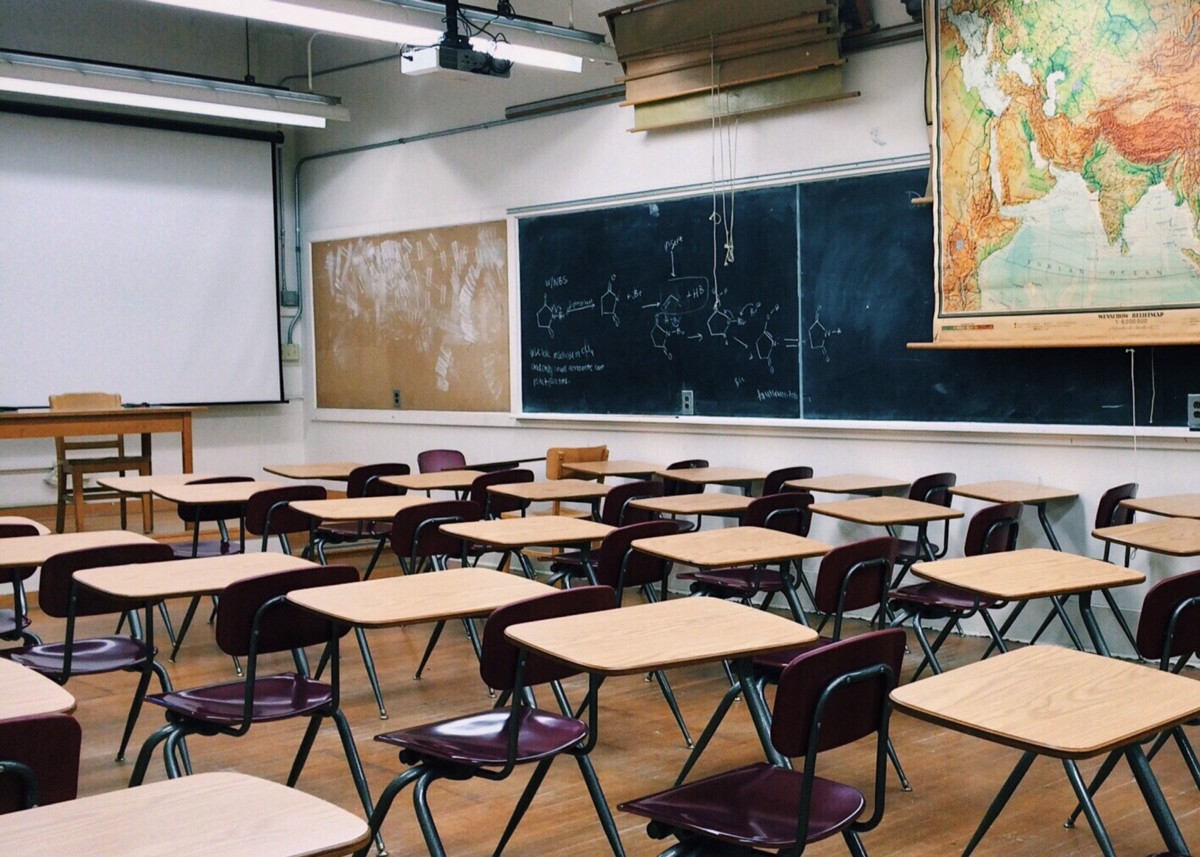
By Tim Middleton As a means of identifying the different levels of understanding of children at school, a group of youngsters were asked the same questions and their answers were correlated. One simple question was: “How do you see the school?” It was a fair question. The first child replied that “I see it as a vital gateway for me to go far in life, a perfect base to launch my future, a passport to greater things.” The second child was asked the same question and answered that “I see it as being necessary even if it is not very exciting.” The third child answered, “I see it when I get off the bus.”
Children view their school, and education as a whole, in different ways. Some are indeed excited and inspired by what is on offer at their school. They are motivated and encouraged, intrigued and absorbed. They involve themselves fully in all that is offered and required, while benefitting greatly from it all. Others tolerate it without being overly enthralled or enriched. They see it as a sentence that will pass in due course without being painful or damaging. Then there are those who just do not get it, who do not always go there, who fail to see the point or relevance when they are there. They do their best to enjoy it on their terms and look forward to the day when they can legally, officially, not go there ever again. In short, children do not always see school or education as others do.
Teachers too may well be divided into different categories regarding how they see school. There are those for whom it is a calling, a vocation, a passion, a delight; they catch a vision of how they can help future generations and make a difference. Then there are those who simply see it as a career, a steady, respected profession that provides opportunities for further study, development as well as promotion and fulfilment. There will always be a need for teachers. And finally, there are those for whom education is just a job, a means to bring in some money to pay the bills in order to enjoy life. They go to school to get children through exams so they can keep their job. Teachers do not always see school or education as others do.
Parents for the most part, however, see school as essential and vital. They see it as being incredibly important for their child. It is seen to be the pathway out of poverty to so many parents, all the more so when they have been deprived of such. They want the best for their child and see education as the means to that end. Many parents will demand the highest standards from schools, even standards which they may not attain in their own employment. They want it and they want the best.
Then there are the politicians with their views of school and education. All will declare that it is at the top of their agenda and priorities. The Constitution states that all Primary education is to be free; children have the right to such education and they have the responsibility to honour that. The future of the country depends on the education of the children. Schools are proclaimed to be vital.
In each category, then, there are those who declare that school is crucial. If, however, we look at it purely from how it is treated, then we might gain a slightly different perspective. When teachers are taken away from their classes during term-time (and not replaced) so that they can train to be census recorders, what does that say about the education of the children? When schools are closed for days during term-time so that voting in elections can take place there (when they could be held in holiday-time), what does that say about education? When term dates, set in advance, are changed at short notice to accommodate non-educational activities, what does that say? When teachers are paid far less than other professions, what does that say about their value and importance?
When schools have more restrictions placed on them than other businesses or industries, what does that say about people’s view of education? When schools must consult parents to consider increases in fees but no other business has to gain assent — no shops, no medical aid society, no business — what does that say about schools? When airlines will not accept any passenger onto a plane if the passenger has not paid for the ticket but schools are expected to accept pupils whose parents have not paid the required fees, what does that say? When people can drive their cars when others do not have cars but schools cannot open until all schools can open, what does that say?
How do we see education? It will be seen by what we do, by what we accept and what we change.
- Chamisa under fire over US$120K donation
- Mavhunga puts DeMbare into Chibuku quarterfinals
- Pension funds bet on Cabora Bassa oilfields
- Councils defy govt fire tender directive
Keep Reading
- Tim Middleton is the executive director of the Association of Trust Schools [ATS]. The views expressed in this article, however, are solely those of the author in his private capacity and do not necessarily represent the views of the ATS.
- email: ceo@atschisz.co.zw
- website: www.atschisz










